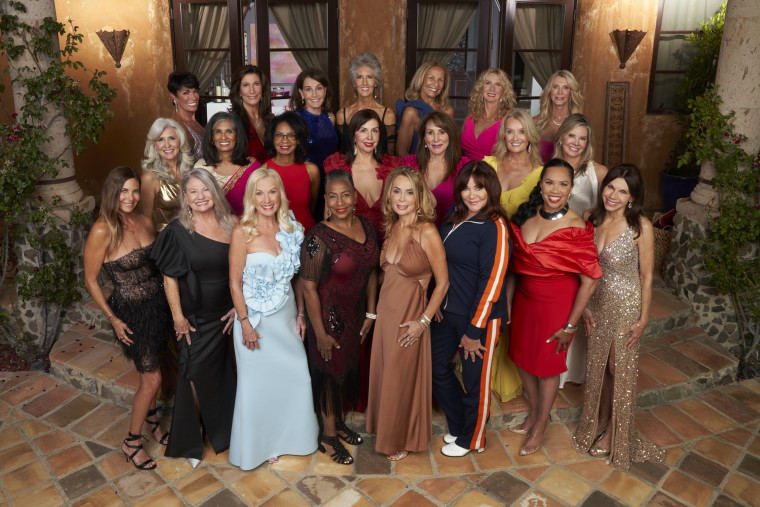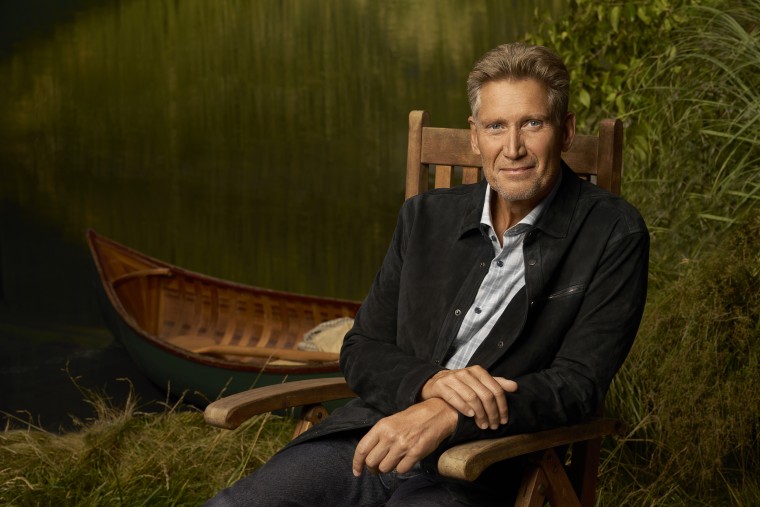Let’s set the scene: The lighting is warm. A rose sits on a table. The opening piano chords of JVKE’s “Golden Hour” play in the background.
“He doesn’t have gray hair; he has wisdom highlights,” a sultry voice-over promises. “Florida wants to retire and move to him.” The camera pans up, and we see the subject of these proclamations: a handsome, bronzed gentleman with a slightly weathered face, a full head of hair and visible hearing aids.
Who is this man? He’s 72-year-old retired restaurateur Gerry Turner, and he is set to make his debut Thursday night as the first-ever “Golden Bachelor.” Turner is a girl dad, a pickleball enthusiast and a widower who was married to his high school sweetheart for 43 years. And he might be just what “The Bachelor” needs to burnish the franchise's rapidly disintegrating cultural relevance.
If “The Bachelor” franchise is to be resuscitated, it’s going to be done by a group of utterly fabulous older adults.
You might not expect a septuagenarian grandfather to be the draw that gets a mass of lapsed "Bachelor" fans — as well as those who never thought they’d engage with the franchise — to tune in to ABC. And yet I've seen what can only be described as palpable excitement, both online and among people of all ages in my life, at the prospect of watching Turner take a shot at finding love among a group of single women between the ages of 60 and 75. If “The Bachelor” franchise is to be resuscitated, it’s going to be done by a group of utterly fabulous older adults.

It’s not breaking news that our culture is obsessed with youth, nor that “The Bachelor” has a spotty track record when it comes to expanding representation. Since “The Bachelor” first aired in 2002, it has centered a very particular vision of romantic partnership — namely, heterosexual, Christian marriage — overwhelmingly between two white, thin, young, conventionally beautiful people. Even as fans — and some cast members — pushed for greater representation over the years, change seemed to happen at a snail’s pace, often too little, too late. (It came as no surprise to those of us who have been paying attention when creator Mike Fleiss exited in March, reportedly on the heels of an investigation into alleged racial discrimination.)
Viewers dropped off, especially as the reality dating space diversified and shows like “Love Island” and “Love Is Blind” rose to cultural prominence. “The Bachelor,” meanwhile, was floundering. Executives had been kicking around for years a version of the show built around older singles — after all, their fan base was aging! — and started casting in early 2020. But then the Covid-19 pandemic happened, and they hit the brakes. When they picked things back up in 2023, they found Turner’s audition tape.
While the lead is important for any “Bachelor” season, it’s the women who are really the stars. So people waited with trepidation for the rest of “The Golden Bachelor” cast to be announced. Would they cast a bunch of women in their 40s to date a 72-year-old? Would all of the women look the same? Would the show make these women the butt of the joke, rather than people worthy of being desired?
While other recent reality shows have played around with the idea of showcasing the love stories of women over 40, none have done it particularly well. TLC’s “MILF Manor” featured women in their 40s to 60s, but it subjected them to public horror and scorn by forcing them to date each other’s sons, who were as young as 20. (The entire project was “haunted by the spectre of incest,” as The New Yorker’s Naomi Fry put it.) Hulu’s “Back in the Groove” allowed its leads to be complete people, sexy and worthy of love, but they were all in the earliest years of their 40s.
These women were just themselves from the jump.
clarie freeland 'golden bachelor' showrunner
When the cast of “The Golden Bachelor” was finally announced at the end of August, fans breathed a collective sigh of relief, and the real excitement began. All of the women who will be dating Turner are over the age of 60. They are all beautiful, but not in a way that feels like they are desperately clinging to an approximation of their youth. They are educators and shark divers and world travelers and Christmas obsessives. They have great credit (looking at you, Sandra!), three master’s degrees (Marina), and saw the Beatles in 1964 (Christina). They are mothers and grandmothers. They have loved and lost and are ready to love again.
“When we cast for the other shows, some of the younger kids come to us and they have a feeling that they need to present a version of themselves that we want to see,” Claire Freeland, one of the three showrunners of “The Golden Bachelor,” told The New York Times. “These women were just themselves from the jump.”
And isn’t that what we want from our greatest reality television? To see real people in all of their messy, funny, wholesome, loving glory interact in imperfect, but potentially hopeful, ways? Maybe, just maybe, that’s what we’ll see Thursday night on ABC. For the last decade, “The Bachelor” franchise has been chasing the cultural conversation, always two steps behind and doing it poorly. But with “The Golden Bachelor,” they’re finally starting one.

